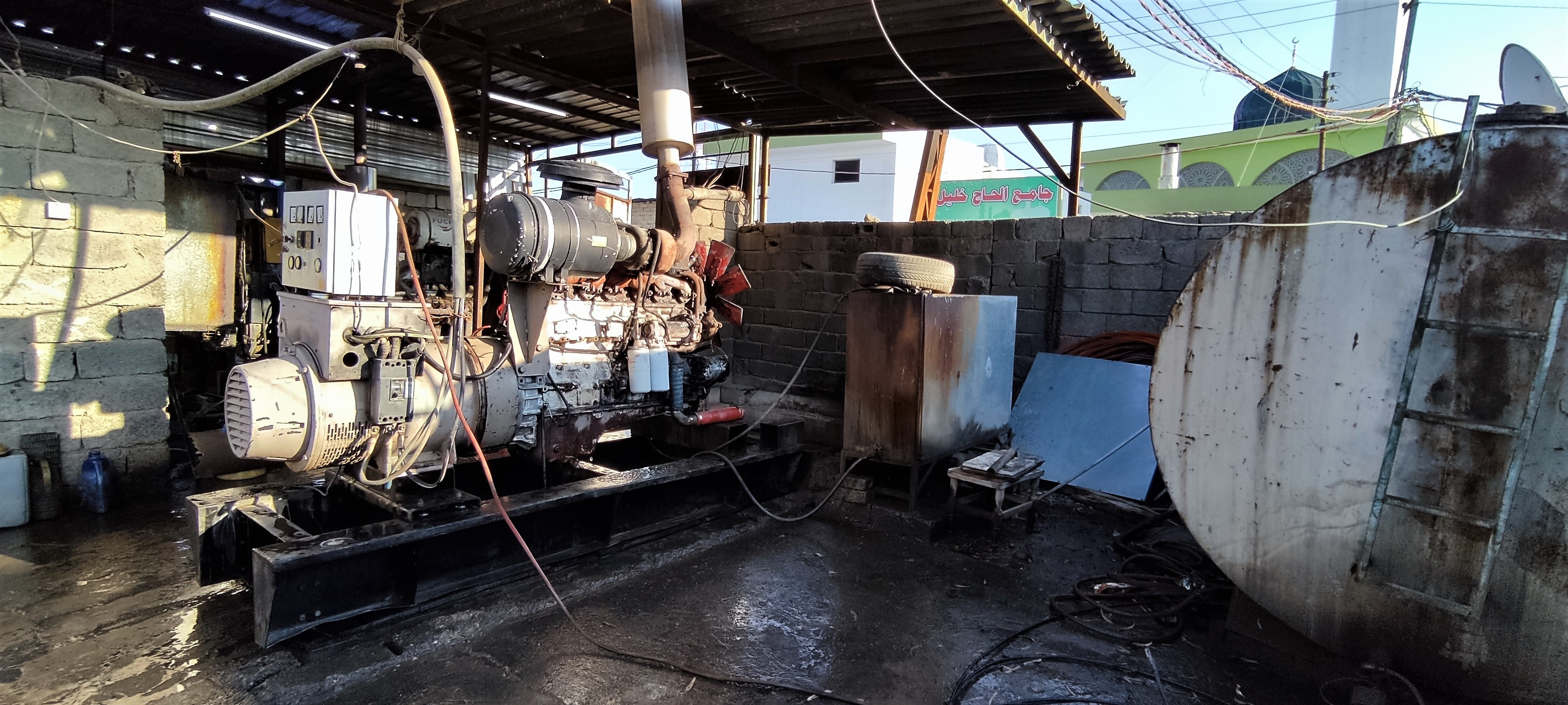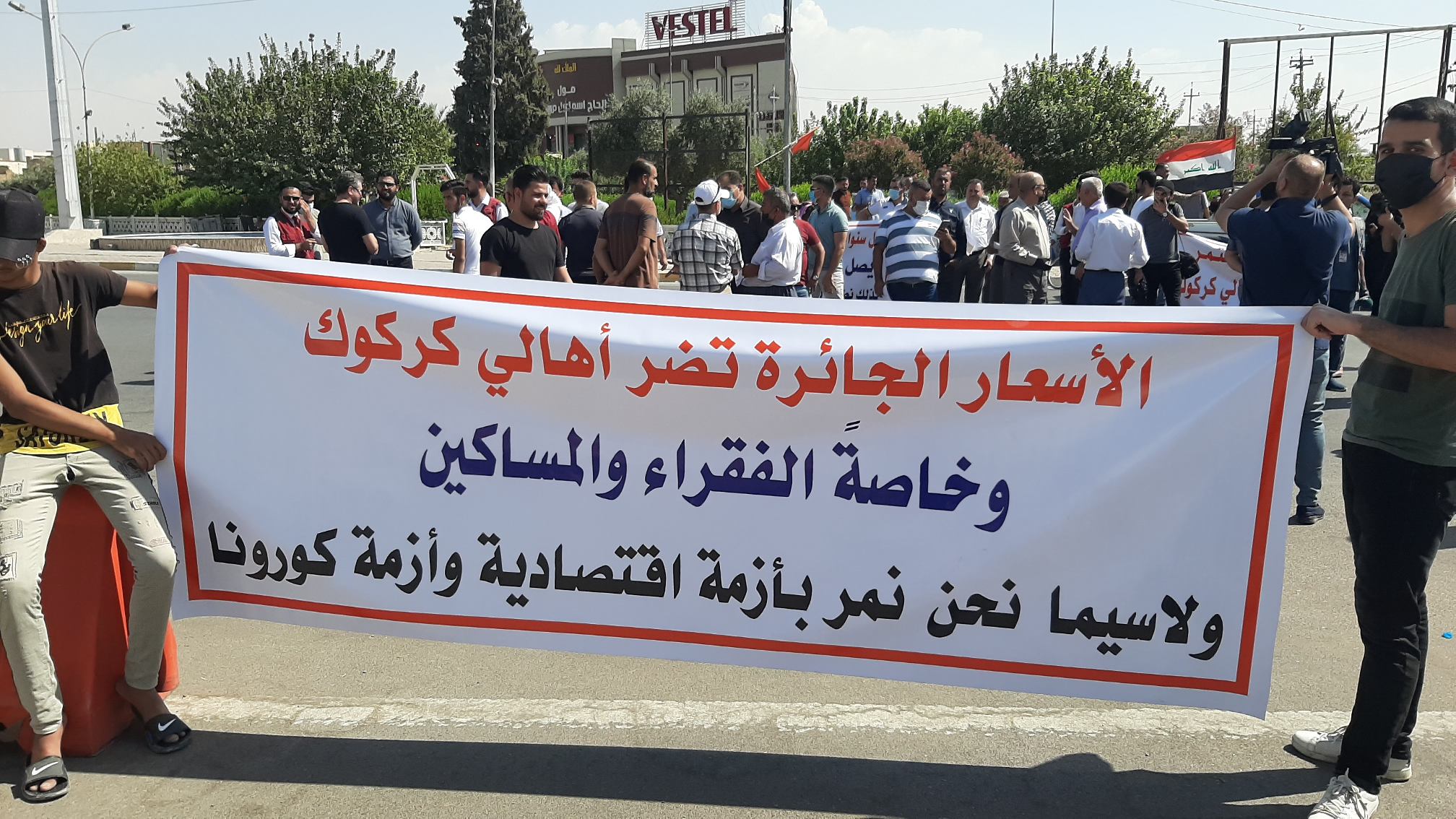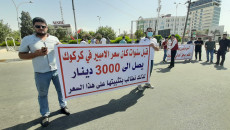A committee of local officials in the Kirkuk administration and representatives of the province in the Iraqi parliament MPs cooperate to reduce the price of the electricity provided by private diesel-generators for February while owners of the generator that they will not accept the price reduction unless supplied with sufficient quantities of subsidized fuel or the state to supply longer hours of national electricity.
The price of an ampere for the electricity of private generators for the month of January ranged between 12,000-15,000 Iraqi Dinars IQD ($10), which provoked the discontent of citizens on social networks and forced a number of MPs and the Kirkuk administration to seek reduction of private generator bills for the next month.
Wafaa Yassin, a resident of Kirkuk city, said that the amount is too much and not every family can afford it. “Moreover, the generators stop working for one hour every night to rest them while nowadays it is the exam period and the students need to study and prepare for the exams.”
It is not our fault that the price of one amp reached 15,000 dinars
During January, the hours of supplying citizens with electricity from private generators ranged between 300-350 hours, while the number of hours of supplying national electricity reached only 100 hours, according to Qader Anwar, one of the generators' owners.
Anwar said, "In addition to the increase in fuel prices, the hours of national electricity supply have dropped. It is not our fault that the price of one ampere reached 15,000 dinars."
Beside the national network of state-subsidized electricity supply all over Iraq, residential units and business projects rely on private generators for power supply to fill the gap of national power outage.
Following gulf war in 1991, the Iraqi state infrastructure was sharply hit by the economic embargo on Saddam Hussein regime due to damage of many transmission lines and substations leaving the basic services provided by the state inadequate.
Few years later, the local authorities gave permission to installation of private diesel generators in the residential neighborhoods to provide power and fill in the national power outages as it could provide only half of the demand on power supply.
The cost of the power provided by private generators is couple of times double of power provided by the state thus people are obliged to consume as less as possible during national power outage in order to pay less for private generators.
The Kirkuk administration has allocated 20 liters of diesel for private diesel power generators for every hour of operation, at a subsidized price, as the price of one liter in the market ranges between 600-625 Dinars.
"The fuel that the government supplies us is not enough for 300 operating hours, so we have to buy fuel from the market, and that costs us a lot," the generator owner added.

Kirkuk, 2022: private generators provide citizens with electricity 12 hours a day. KirkukNow
The representative of Kirkuk governorate in the Iraqi parliament, Sabah Zangana, last week paid a visit to the mayor of Kirkuk regarding the issue of prices for private generators.
Zangana said told KirkukNow the price that was set for the month of January will not change. Increasing the share of private generators of fuel from 10 liters to 20 liters per hour of operation has not changed, because in light of the short number of hours of supplying national electricity, this quantity is not enough for private generators for more than 80 hours.
According to (KirkukNow) follow-up, the number of hours of supplying citizens with electricity by both national network and private generators reaches 16 hours per day.
There are 733 private generators all over neighborhoods of Kirkuk.
The goal is to reduce the price of one amp for the month of February 3,000-4,000 Dinars
"A committee was formed from the Kirkuk administration, the mayor and a number of deputies in order to find a solution to prevent this problem from recurring next month,” Zangana said.
The committee will meet with the Oil Products Distribution Company, and the goal is to reduce the price of one ampere for the month of February by about 3,000-4,000 dinars."
But the owner of the private generator, Qader Anwar, said, "In my opinion, if the hours of supplying national electricity are not increased, the situation will not change because the matter is not in our hands."
An informed source in the Kirkuk Electricity Distribution Directorate anonymously told KirkukNow earlier, "The main reason behind the decrease in the number of hours of supplying national electricity is that Kirkuk needs 950 megawatts, but currently it only receives about 350 megawatts."
In addition to the electricity produced by gas stations, Kirkuk depends on electricity that is secured by an investor in the Kurdistan Region under a contract with the local administration, but the investor stopped supplying Kirkuk with electricity months ago, the source said, without explaining the reasons.
Located 238 kilometers north of Baghdad, Kirkuk is an ethnically mixed province for 1,7 million Kurds, Sunni and Shiite Arabs, and Turkmen. It has long been at the center of disputes between Baghdad and the Erbil.
Though the five oil wells of Kirkuk pump out about three million barrels of crude oil a month marketed for over 200 million American Dollars, the province misses proper utilities of power supply, drinking water, garbage collection, and basic healthcare and education system badly hurt by corruption and long years of war and instability.
Iraq's electricity ministry has cited a number of causes for the prolonged and widespread cuts including sabotage attacks, shortages of fuel for power stations, and the suspension of energy supplies from neighboring Iran.
Sabotage acts have lately found power transmission towers a hot target.
The Iraqi ministry of electricity said in a statement on August 5th that 13 towers for transmission of power were damaged by the militants in 48 hours in Ninawa, Kirkuk and Salahaddin, including Kirkuk-Gayarra (in Mosul) by IED, causing damage to five towers.






